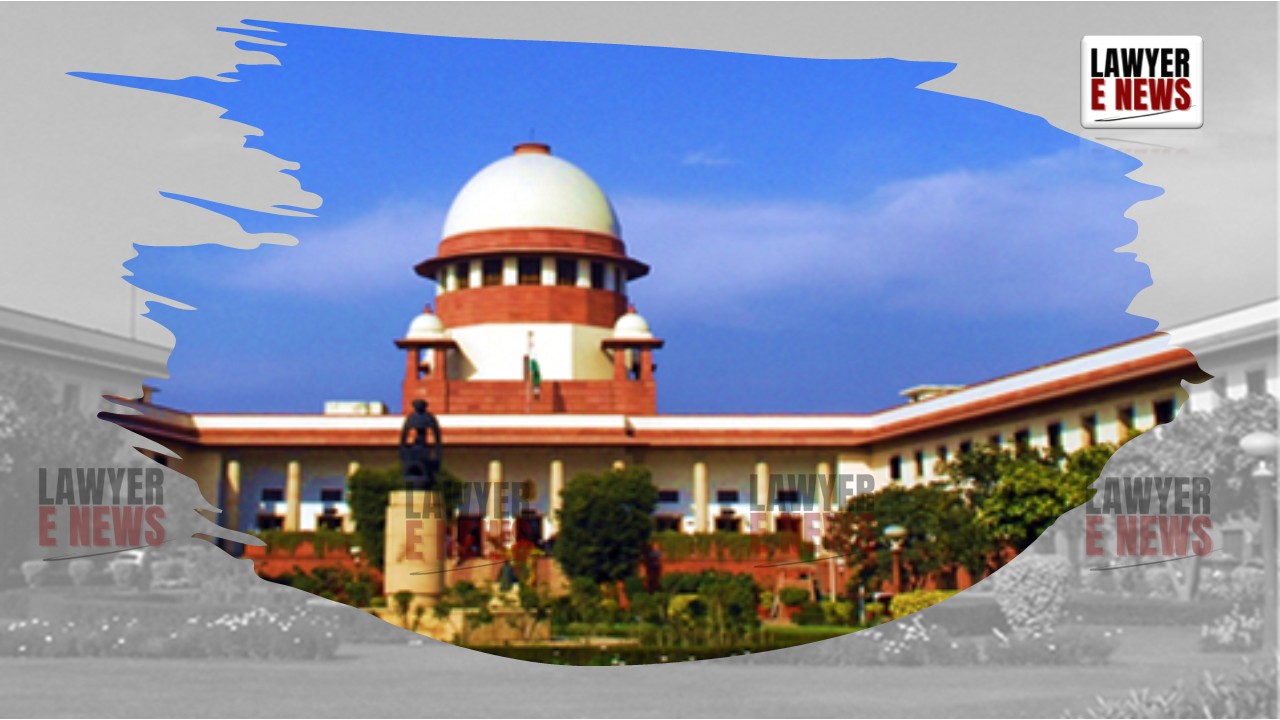-
by sayum
17 February 2026 8:32 AM



“Caste Certificate Cannot Be Challenged in an Election Petition — Statutory Scheme Must Be Followed for its Invalidation”, - In a landmark ruling Supreme Court of India reversed the Kerala High Court’s decision that had declared the appellant’s election void on the ground of ineligibility to contest from a Scheduled Caste (SC) reserved seat. The Court held that in the absence of a statutory provision allowing caste certificate challenges within election petitions, such disputes must be resolved under the special legislation enacted for that purpose — here, the Kerala (Scheduled Castes and Scheduled Tribes) Regulation of Issue of Community Certificates Act, 1996.
Justice Ahsanuddin Amanullah, writing for the Bench of Justices Abhay S. Oka, Ahsanuddin Amanullah, and Augustine George Masih, observed: “We have no hesitation to hold that a Caste/Community Certificate cannot be assailed in an Election Petition. Exception to the above proposition can only be by way of legislative carve-out in the State concerned, which will be determinative.”
“A duly issued Caste/Community Certificate would be amenable to challenge only under the provisions of the statute concerned, and not in an Election Petition.”
“Allegations of Religious Conversion Must Be Proved Beyond Reasonable Doubt in Election Petitions”
The core of the respondent's case was that the appellant, A. Raja, was not a Hindu Parayan of Kerala and had converted to Christianity, thereby becoming ineligible to contest from Devikulam Legislative Assembly Constituency, which is reserved for Scheduled Castes. The High Court accepted this claim and set aside the election under Sections 100(1)(a) and 100(1)(d)(i) of the Representation of the People Act, 1951.
However, the Supreme Court found the evidentiary standard lacking.
“Election Petitions, even those without allegations of corrupt practices, must be proved beyond reasonable doubt — not on a preponderance of probabilities,” the Court reiterated, citing M. Chandra v. M. Thangamuthu and J. Chandrasekhara Rao v. V. Jagapathi Rao.
The Court discredited the baptism evidence, particularly noting that the alleged pastor, Ebenezer Mani, was only 14 years old in 1982 — the year when the conversion was said to have taken place.
“This is clearly unbelievable and unsustainable,” the Bench declared.
It further clarified the law on religious profession: “The mere observance or performance of a ritual of another religion does not mean that the person ‘professes’ that religion. The term ‘professes’ requires a conscious and open declaration of belief. “From the evidence available, it is not possible to hold that the appellant ‘professes’ Christianity.
“Caste Certificate Issued by Competent Authority Presumed Valid — No Independent Inquiry Allowed in Election Petitions”
The appellant’s caste certificate declaring him as Hindu Parayan of Kerala had been issued by a competent authority and was not challenged before any scrutiny committee. The Court held: “The Competent Authority functions akin to a quasi-judicial body. Unless invalidated under the Kerala Act, such a certificate must be presumed valid.”
“The Election Petitioner failed to examine the authority that issued the certificate or challenge its issuance in accordance with law.”
The Court emphasized that the Kerala Act provides a complete statutory scheme, including appellate and review mechanisms, and even special courts for offences. It held that Section 10 of the Kerala Act, which places the burden of proof on the claimant, applies only to proceedings under that Act — not to election trials.
“The words ‘in any trial’ in Section 10 must be read ejusdem generis with the surrounding text — i.e., trials under the Kerala Act. We are not inclined to accept the contention that election petitions are included.”
The Court found the High Court’s reliance on the Sobha Hymavathi Devi precedent misplaced, holding that the relevant paragraph in that judgment was rendered sub silentio and thus not binding.
“Appellate Court Cannot Travel Beyond the Pleadings in Election Petitions”
Another key ground of reversal was the High Court’s deviation from pleadings. The Supreme Court found that the High Court had reconstructed a new case by interpreting the appellant's ancestors' migration to Kerala as “for the purpose of employment only”, which was neither pleaded nor proved.
“Even if evidence is led, it cannot be taken into consideration unless it aligns with the pleadings,” the Court reiterated, citing Kalyan Singh Chouhan v. C.P. Joshi.
“Doctrine of Eclipse and Burden Under Section 106 of the Evidence Act Misapplied by High Court”
Rejecting the respondent’s invocation of the doctrine of eclipse, the Court held that there was no concrete evidence that the appellant had ever ceased to profess Hinduism. It also clarified that Section 106 of the Indian Evidence Act does not shift the primary burden of proof in an election petition.
“The Election Petitioner cannot evade the duty to prove his case by invoking presumptions under Section 114 or burden under Section 106 of the Evidence Act. Allegations of conversion must be established affirmatively.”
The Supreme Court conclusively held that the validity of caste/community certificates must be determined under the specific legislation — not in election petitions, unless expressly provided. In doing so, it safeguarded both the sanctity of electoral processes and the legal framework for affirmative action.
“The Election Petition falls short of the standard prescribed. The appellant, therefore, retained the Hindu Parayan caste, as a member of the Hindu religion, when he contested the election.”
The appeal was allowed, the High Court’s judgment set aside, and the appellant’s election was restored with all consequential benefits.
Date of Decision: May 6, 2025
